Confederate Truths: Documents of the Confederate & Neo-Confederate Tradition from 1787 to the Present.
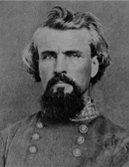

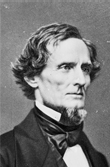
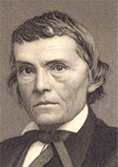


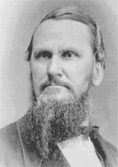
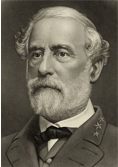
Virginia Proposes an Amendment to the Constitution
Virginia Proposes an Amendment to the Constitution
After the Virginia resolutions were considered, a 13th Amendment to the U.S. Constitution was proposed by the Virginia State Convention and each of its sections discussed and voted on. In this listing I review the final sections adopted for proposed Sections 1 through 4, the additional section adopted to be intercalculated between the proposed Section 3 & 4, and Section 5 as amended in debate but not adopted. For the remaining sections 6 through 8, I include them as proposed by the Committee on Federal Relations.
The 6th, 7th, and 8th section weren't adopted because with the outbreak of the Civil War, a 13th amendment became irrelevant and consideration on the proposed 13th amendment ceased.
Can you imagine what the U.S. Constitution would have become if an amendment like this had been adopted? Would the Constitution still be considered a document of liberty?
From the record:
Proceedings of the Virginia State Convention of 1861, Vol. 3 pp. 659-660, adopted page 692 April 13, 1861 as amended.
Section 1: In all the present territory of the United States, north of the parallel of thirty-six degrees and thirty minutes of north latitude, involuntary servitude, except in punishment of crime, is prohibited. In all the present territory south of that line, involuntary servitude, as it existed on the first day of March, 1861, shall remain, and shall not be changed; nor shall any law be passed by Congress or the Territorial Legislature to hinder or prevent the taking of persons held to service or labor, from any of the States of this Union to said Territory; nor to impair the rights arising from said relation; nor shall said rights be in any manner affected by any pre-existing law of Mexico; but the same shall be subject to judicial cognizance in the Federal courts, according to the remedies and practice of the common law. When any Territory north or south of said line, within such boundary as Congress may prescribe, shall contain a population equal to that required for a member of Congress, it shall, if its form of government be republican, be admitted into the Union on an equal footing with the original States, with or without involuntary servitude, as such Constitution of the State may provide. In all territory which may hereafter be acquired by the United States, involuntary servitude is prohibited, except for crime, north of the latitude of thirty-six degrees and thirty minutes; but shall not be prohibited by Congress, or any Territorial Legislature, south of said line.
Proceedings of the Virginia State Convention of 1861, Vol. 3 pp. 692 April 13, 1861.
Section 2: No territory shall be acquired by the United States, except by discovery and for navel and commercial stations, depots and transit routes, without the concurrence of a majority of all the Senators from States which allow involuntary servitude, and a majority of all the Senators from States which prohibit the relation; nor shall territory be acquired by treaty, unless the votes of a majority of the Senators from each class of States hereinbefore mentioned be cast as part of the two-thirds majority necessary to the ratification of such treaty.
Vol. 3 pp. 710 April 13, 1861, adopted as amended. However, no amendments that passed are found between pages 692 and 710. The debates revolved about the wording, but not the substance of this section.
Proceedings of the Virginia State Convention of , Vol. 3 pp. 710 April 13, 1861
Neither the Constitution, nor any amendment thereof, shall be construed to give Congress power to legislate concerning involuntary servitude in any State or Territory wherein the same is acknowledged or may exist by the laws thereof, nor to interfere with or abolish the same in the District of Columbia, without the consent of Maryland and Virginia, and without the consent of the owners, or making the owners, who do not consent, just compensation; nor the power to interfere with or prohibit representatives and others from bringing with them to the District of Columbia, retaining and taking away, persons so held to labor or service, nor the power to interfere with or abolish involuntary servitude in any State or Territory of the United States or any other State or Territory thereof, where it is established or recognized by law or usage; and the right during transportation by sea or river, of touching at ports, shores and landings, and landing in case of need shall exist, but not the right of sojourn or sale in any State or territory against the laws thereof. Nor shall Congress have power to authorize any higher rate of taxation on persons held to labor or service than on land.
The bringing into the District of Columbia persons held to labor or service for sale, or placing them in depots to be afterwards transferred to other places for slave as merchandise is prohibited.
Vol. 3 pp. 711 April 13, 1861 Adopted.
Proceedings of the Virginia State Convention of 1861, Vol. 3 pp. 711 April 13, 1861
Section 4: The third paragraph of the second section of the fourth article of the Constitution shall not be construed to prevent any of the States, by appropriate legislation, and through the action of their judicial and ministerial officers, from enforcing the delivery of fugitives from labor to the person to whom such service or labor is due.
Vol. 3 pp. 713-14 April 13, 1861 adopted.
Proceedings of the Virginia State Convention of 1861, Vol. 3 pp. 711 April 13, 1861
Additional Section between Section 3 and 4: In all cases where property in persons held to service or labor in any State or Territory of the States or in the District of Columbia has been or hereafter may be taken for public use as in the case of impressments in war or otherwise, the owner thereof shall be justly compensated as in the case of other property taken; and in all cases involving the question of property in said persons, the rights of property in them shall be recognized and protected by the United States and other authorities, as rights to any other property are recognized and protected.
Vol. 3 pp. 713 April 13, 1861 adopted
Proceedings of the Virginia State Convention of 1861, Vol. 3 pp. 714 April 13, 1861
Section 5: The importation of slaves, coolies or persons held to service or labor, into the United States, and the territories, from places beyond the limits thereof, is hereby forever prohibited.
Vol. 3 pp. 714 April 13, 1861 amended to add the following:
But this section shall not be so construed as to prohibit the introduction of persons so held to service or labor into the United States, from the Confederate States, or any territory they may hereafter acquire.
The amend text would then be as follows:
Section 5: The importation of slaves, coolies or persons held to service or labor, into the United States, and the territories, from places beyond the limits thereof, is hereby forever prohibited. But this section shall not be so construed as to prohibit the introduction of persons so held to service or labor into the United States, from the Confederate States, or any territory they may hereafter acquire.
Not adopted, the Civil War breaks out. Motion to suspend in Vol. 3, pp. 740, April 15, 1861.
The remaining Sections proposed but not adopted are as follows.
Proceedings of the Virginia State Convention of 1861, Vol. II pp. 37 March 19, 1861
Section 6: Congress shall provide by law that the United States shall pay to the owner the full value of his fugitive from labor, in all cases where the marshal, or other officer, whose duty it was to arrest such fugitive, was prevented from so doing by violence or intimidation from mobs, or riotous assemblages, or by violence, or when, after arrest, such fugitive was rescued by like intimidation or violence, and the owner thereby deprived of the same.
Section 7: The elective franchise and the right to hold office, whether Federal or Territorial, shall not be exercised by persons who are of the African race.
Section 8: No one of these amendments nor the third paragraph of the second section of the first article of the Constitution, nor the third paragraph of the second section of the fourth article thereof, shall be amended or abolished without the consent of all the States.